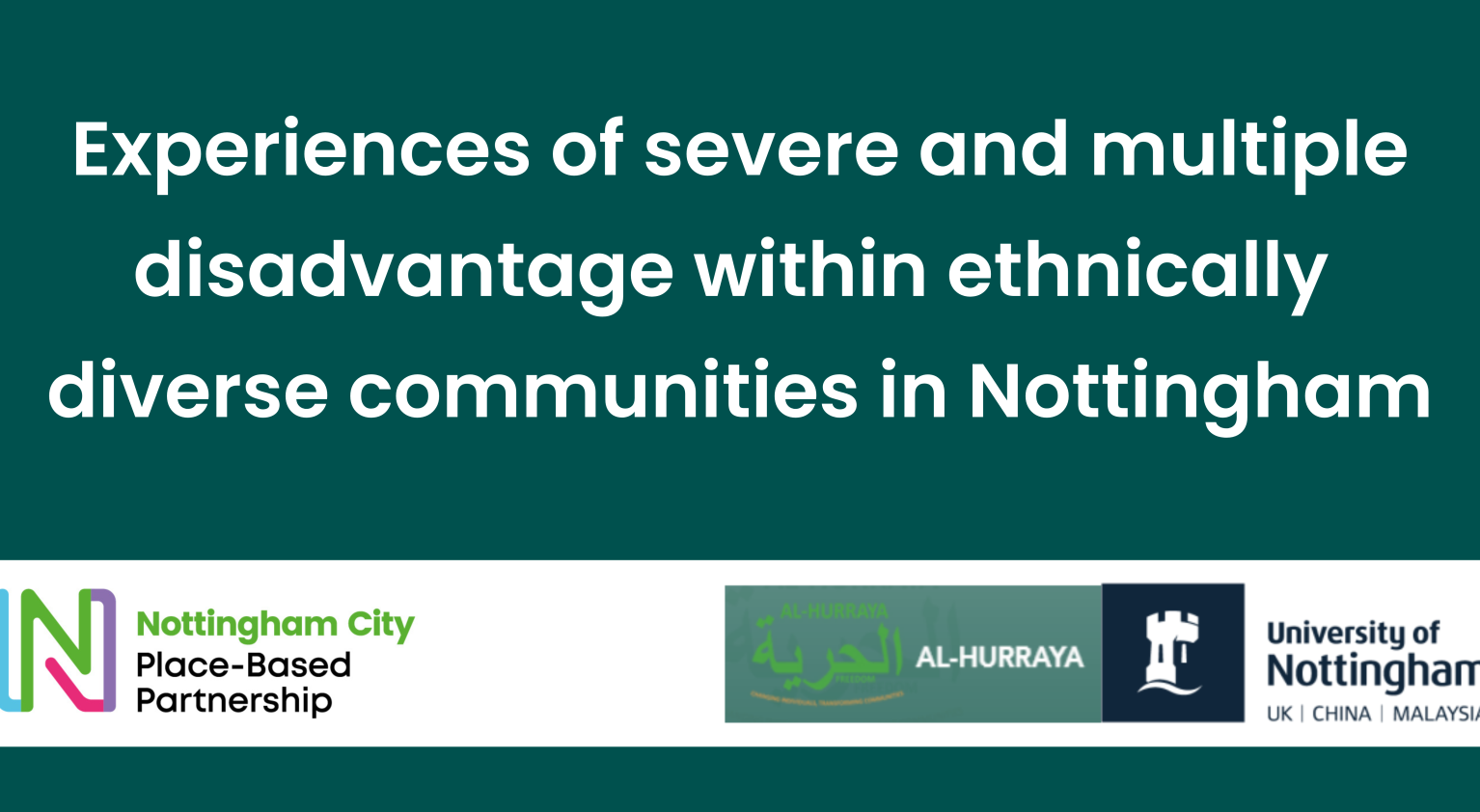
Race Health Inequalities and SMD Report
New Study Highlights the Unique Challenges of Severe and Multiple Disadvantage in Nottingham’s Ethnically Diverse Communities
A groundbreaking new report has been published, shedding light on the experiences of Severe and Multiple Disadvantage (SMD) within Nottingham’s ethnically diverse communities. Commissioned by Nottinghamshire Healthcare NHS Foundation Trust, NHS Nottingham and Nottinghamshire Integrated Care Board, and Nottingham City Council, this study marks the first in-depth exploration of SMD in ethnically diverse communities in Nottingham.
Understanding Severe and Multiple Disadvantage (SMD)
SMD refers to the co-occurring experiences of three or more disadvantages, including homelessness, substance misuse, mental-ill health challenges, domestic and sexual violence and/or abuse, and involvement with the criminal justice system.
Until now, most research has focused on white men as the primary group affected by SMD. Previous research, such as the Lankelly Chase Foundation’s “Hard Edges” report, estimated that around 58,000 people in England are affected by SMD each year, with white men being the most represented group. However, this new study challenges these findings, evidencing the prevalence of SMD among women and minority ethnic communities.
The Impact of Racial Trauma
One of the most significant findings from the research is the role of racial trauma in the experiences of SMD among ethnically diverse communities. Participants interviewed as part of the research shared that racism often compounded their challenges, with a case being made for racial trauma being recognised as an additional, distinct, form of disadvantage within the SMD framework.
While research participants report that some local services have shown a deep understanding of racial trauma, the study advocates the need for broader staff training and development to ensure that there is a better understanding of the impact of racial trauma, particularly for people experiencing SMD.
Why this matters for Nottingham
Nottingham’s population has become increasingly diverse, with 42.7% of the population not identifying as White British in the 2021 Census. As the demographic makeup of the city continues to evolve, understanding and addressing the unique experiences of all its residents becomes increasingly important. There is an urgent need to ensure that support services are equipped to meet the needs of all its residents. This report is a crucial step towards ensuring that Nottingham’s support services are inclusive and effective for everyone, particularly those experiencing severe and multiple disadvantage.
Recommendations for the Future
In light of these findings, the report puts forward several key recommendations:
- Incorporating Racial Trauma into Assessments
The report advocates for the inclusion of racial trauma in all assessments of severe and multiple disadvantage. Recognising the impact of racism is crucial to providing effective support.
- Enhancing Service Provider Training
There is a clear need for comprehensive training on racial trauma within equality and diversity strategies across all service providers in Nottingham. This will ensure that staff are better equipped to address the specific needs of ethnically diverse communities.
- Stimulating Further Research
The study also calls for continued research into SMD within diverse communities to build on these findings and improve the support available to those in need.
Join the Conversation
We invite you to read the full report and share your thoughts on how Nottingham can better support its diverse communities. Your feedback and ideas are essential as we continue this important work.
For more information, please contact: nnicb-nn.nottmcityicp@nhs.net